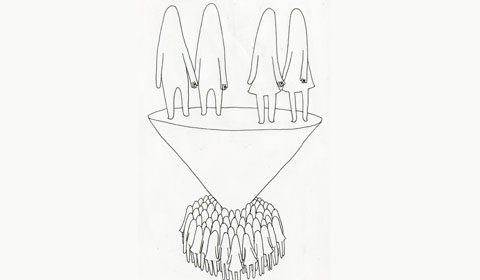
In June, hordes of people changed their Facebook profile pictures to red equals signs in support of marriage equality. The Human Rights Campaign raised hundreds of thousands of dollars selling “FCKH8” shirts, and people plastered message boards with “Love is love :).”
The Defense of Marriage Act and California’s Proposition 8, which prohibited federal recognition of same-gender marriages and made same-gender marriages illegal in California, respectively, were overturned by the United States Supreme Court on June 26, 2013. Sounds like an accepting world, right? Actually, not really.
Living in Los Angeles, it may be hard to realize how rampant homophobia and transphobia still are. LGBT discrimination and victimization still happen incredibly frequently and must be dealt with directly. While it is important to be able to marry a same-gender partner, the unfortunate fact is that many youths can’t even get to that point because they are still too afraid to come out for fear of being bullied or are even committing suicide because of lack of acceptance. Though it is great that same-gender marriages have been legalized in many areas, this barely even begins to address the struggle it is to be something other than heterosexual in a heteronormative society.
While same-sex marriage is the pet issue of many people who are white and affluent, in poorer communities, homelessness and unchecked bullying in schools that lack the resources to take action against it tend to be larger problems. Unfortunately, these issues don’t get entirely addressed. Many groups that are largely internet-based have encouraged “slacktivism,” the type of advocacy in which people sometimes change their profile pictures to show solidarity or sign online petitions (which rarely reach the intended audience) instead of becoming truly engaged in an issue.
Unfortunately, despite the fact that the struggles of bisexual, homosexual, and transgender people have all been put together in the LGBT acronym, many groups fail to actually pay attention to the “T” part. For example, the Human Rights Campaign has, according to several sources, harassed people and told them not to display trans* pride flags at their rallies and supported the removal of protections for trans* people from the Employment Non-Discrimination Act in 2007, so that it only included lesbian, gay, and bisexual individuals. An organization that excludes part of the LGBT movement should not be one that is allowed to be the biggest face of said movement.
The other unfortunate fact about internet-based advocacy movements like the HRC is that they allow quick gratification. Someone who wants to support a cause can simply sign a petition or change his or her profile picture without participating in protests, direct letters and calls to representatives, or donations to groups that directly target issues immediately plaguing the LGBT community.
What are some of these issues? One major issue is LGBT homelessness. While the general youth population is around 3-10% LGBTQ, over 20-40% of homeless youth are LGBTQ. About 29% of heterosexual homeless youths commit suicide, compared to 62% of LGBTQ homeless youths. Even if an LGBTQ youth does not commit suicide, he or she is at a high risk for sexual violence; 58.7% of LGBTQ youth have been sexually assaulted or otherwise victimized, whereas only 33.4% of homeless heterosexual youth have been. Additionally, 20% of all transgender people will be homeless at some point in their lives, and 29% of these transgender people are turned away from homeless shelters because they are transgender.
So, how can you help? There are a number of LGBT-focused homeless shelters that you can donate to, like the Ali Forney Center, which directly assists homeless LGBTQ youth in New York City. The GLBT Advocacy and Youth Services group is also focused on tackling this issue; it is a new organization in Alabama, where, even though many parents force their LGBT children out of the house as soon as they turn 18, it is illegal to sign a lease for a rental apartment in Alabama until age 19.
While donations to the HRC are absolutely well-meaning and have assisted in getting legislation passed, money can be much better spent on groups that are directly targeting important issues right now.



